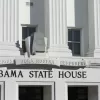The Alabama State Board of Pharmacy voted to withdraw a rule on non-disciplinary penalties amid a lawsuit accusing the board of adopting the unlawful rules in August to impose new fines and fees on pharmacists and pharmacies across the state.
The lawsuit, filed Oct. 1 in Montgomery County Circuit Court by Dr. Emily Singletary Pinon, a licensed pharmacist in Bibb County, alleges that the board “unlawfully adopted emergency rules without making the statutorily required finding of ‘immediate danger to the public health, safety, or welfare.’”
The complaint argues that the August 20 emergency rules were enacted not to protect the public, but to extend “a revenue-raising and enforcement scheme” that legislators had already questioned.
The challenged rule, 680-X-2-.40, established a new schedule of administrative fines for what the board classified as “non-disciplinary” violations, including late renewals, paperwork errors and training documentation issues. It also included a provision stating that such penalties “shall not be considered public record,” which drew immediate scrutiny from lawmakers and pharmacy professionals.
At the board’s October meeting, members acknowledged the controversy and voted to withdraw the rule, agreeing instead to rework it with input from the Attorney General’s Office.
Board members noted that while the rule was intended to protect pharmacists from being penalized for minor issues, its language conflicted with state transparency laws.
Board counsel Jennifer Nuemann defended the original intent, saying the board had tried to protect licensees from losing insurance contracts over small administrative infractions.
“The narrative that was passed on to the state legislature was that we were just trying to hide money, which is inaccurate,” said Nuemann. “We were trying to protect practitioners from having minor issues follow them for their entire careers.”
Board members acknowledged that the approach, while well-intentioned, conflicted with state transparency laws.
After discussion, the board unanimously agreed to let the emergency rule expire and begin work on a new, permanent version that aligns with state law and utilizes legislative feedback. The revised rule will be reformatted with assistance from the Attorney General’s Office to ensure clarity and compliance.
During the meeting, the board also discussed how to handle roughly 19 non-disciplinary penalty letters already sent out under the emergency rule, representing between $12,000 and $19,000 in fines. Members agreed to offer each affected licensee the option of either receiving a refund or letting their case remain closed under the now-defunct rule.
“I think if we offer individual the opportunity to either be refunded and then have their case or their situation and go back into the queue, so to speak, or whether it to consider it gone, I don’t know how much fairer we get than just saying blanket we’ going to do this or do that, but we’d let each individual decide their course of action,” said Nuemann.
The board expects to present a revised version of the rule at its next meeting in November. Meanwhile, Pinon’s lawsuit remains pending in Montgomery County, seeking a court order declaring the August emergency rules invalid and requiring the board to return all money collected under them.


















































